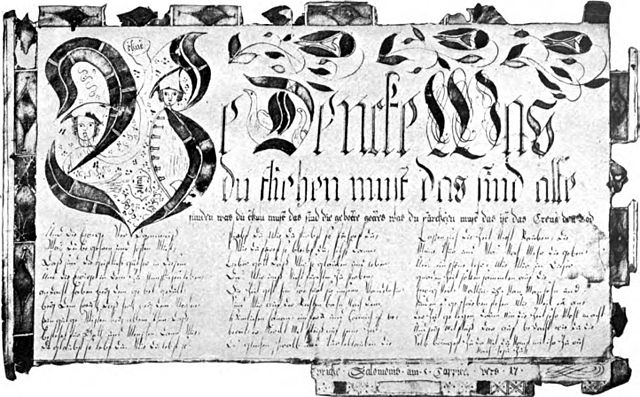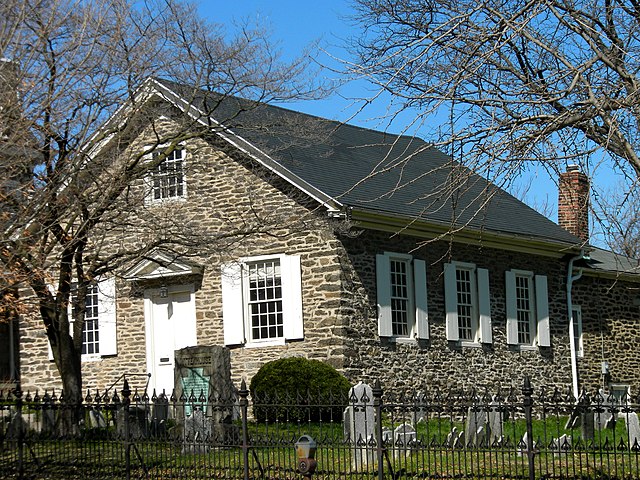Christopher Dock (c.1698—1771) was a Mennonite educator who worked primarily in South-East Pennsylvania. His teaching techniques stood in contrast to the norm of the day, and emphasized character building and discussion in lieu of physical punishment. His legacy lives on in the Christopher Dock Mennonite High School, which bears his name.
Bench and desk from the Germantown school of Christopher Dock
Image: Brumbaugh Christopher Dock Fraktur
Image: Brumbaugh Jacob Harley Schrift
Mennonites are a group of Anabaptist Christian communities tracing their roots to the epoch of the Radical Reformation. The name Mennonites is derived from the cleric Menno Simons (1496–1561) of Friesland, part of the Holy Roman Empire, present day Netherlands. Menno Simons became a prominent leader within the wider Anabaptist movement and was a contemporary of Martin Luther (1483–1546) and Philip Melanchthon (1497-1560). Through his writings about the Reformation Simons articulated and formalized the teachings of earlier Swiss Anabaptist founders as well as early teachings of the Mennonites founded on the belief in both the mission and ministry of Jesus. Formal Mennonite beliefs were codified in the Dordrecht Confession of Faith (1632), which affirmed "the baptism of believers only, the washing of the feet as a symbol of servanthood, church discipline, the shunning of the excommunicated, the non-swearing of oaths, marriage within the same church", nonresistance, and in general, more emphasis on "true Christianity" involving "being Christian and obeying Christ" as they interpret it from the Holy Bible.

An Evangelical Mennonite Church in Altkirch
Praise team at The Meeting Place in Winnipeg, Canadian Conference of Mennonite Brethren Churches
Old Order Mennonite horse and carriage
Germantown Mennonite Meetinghouse, built 1770







